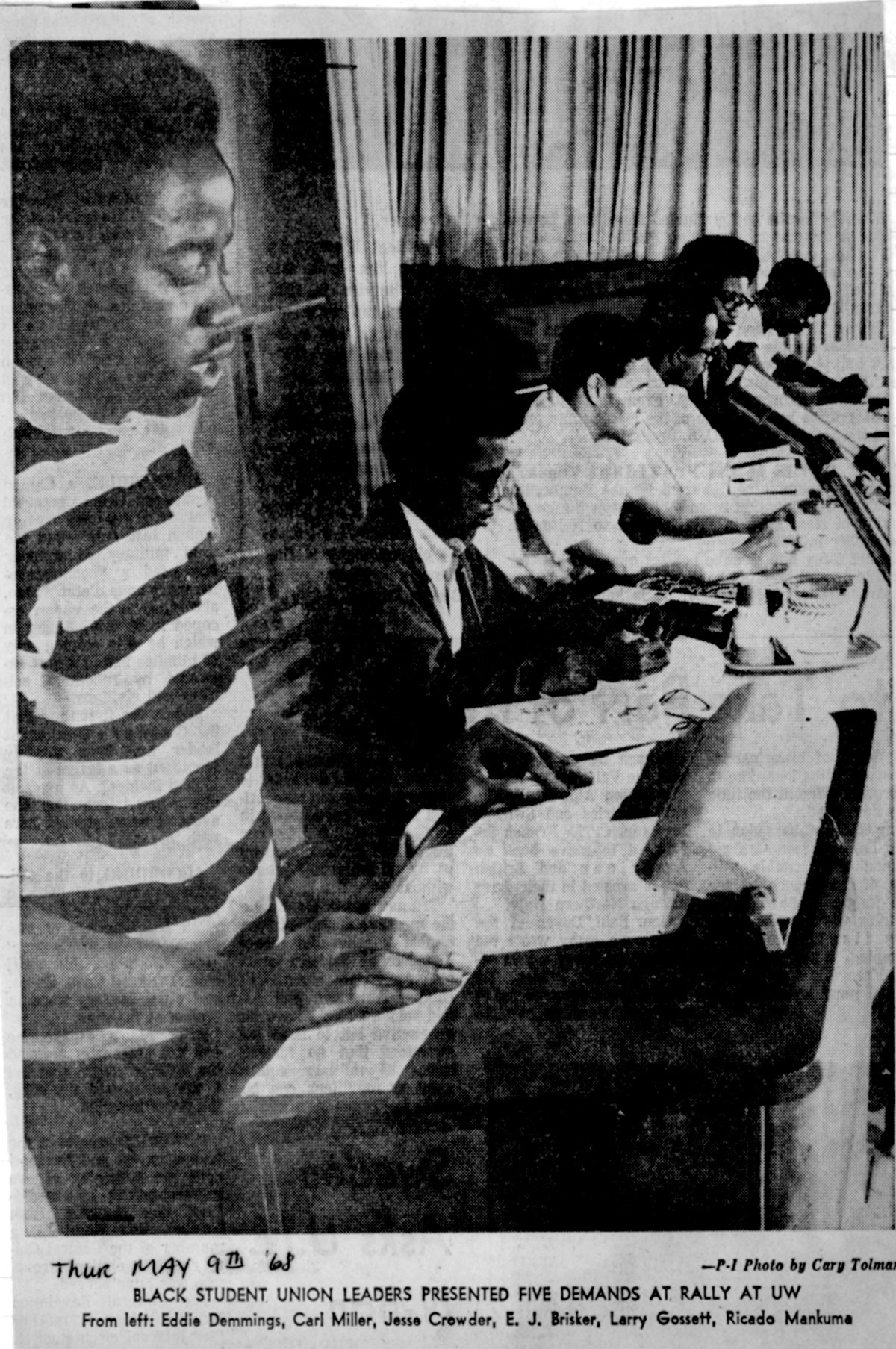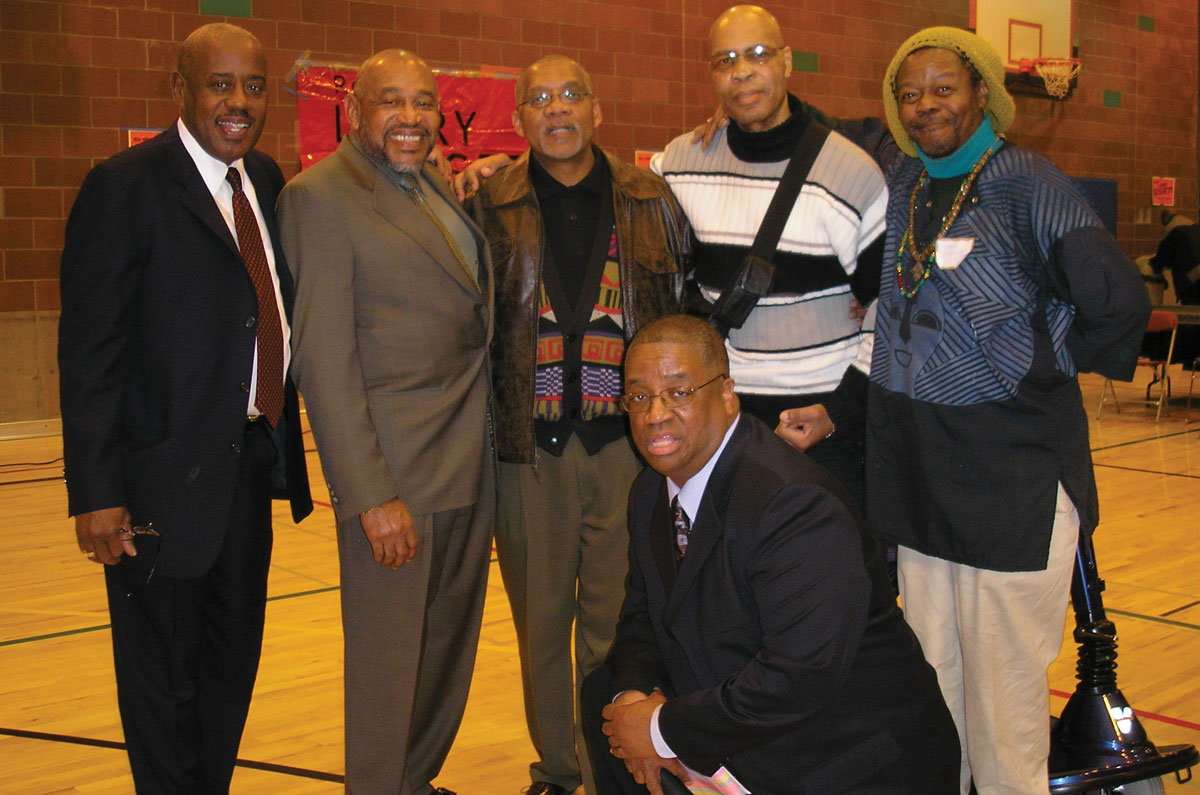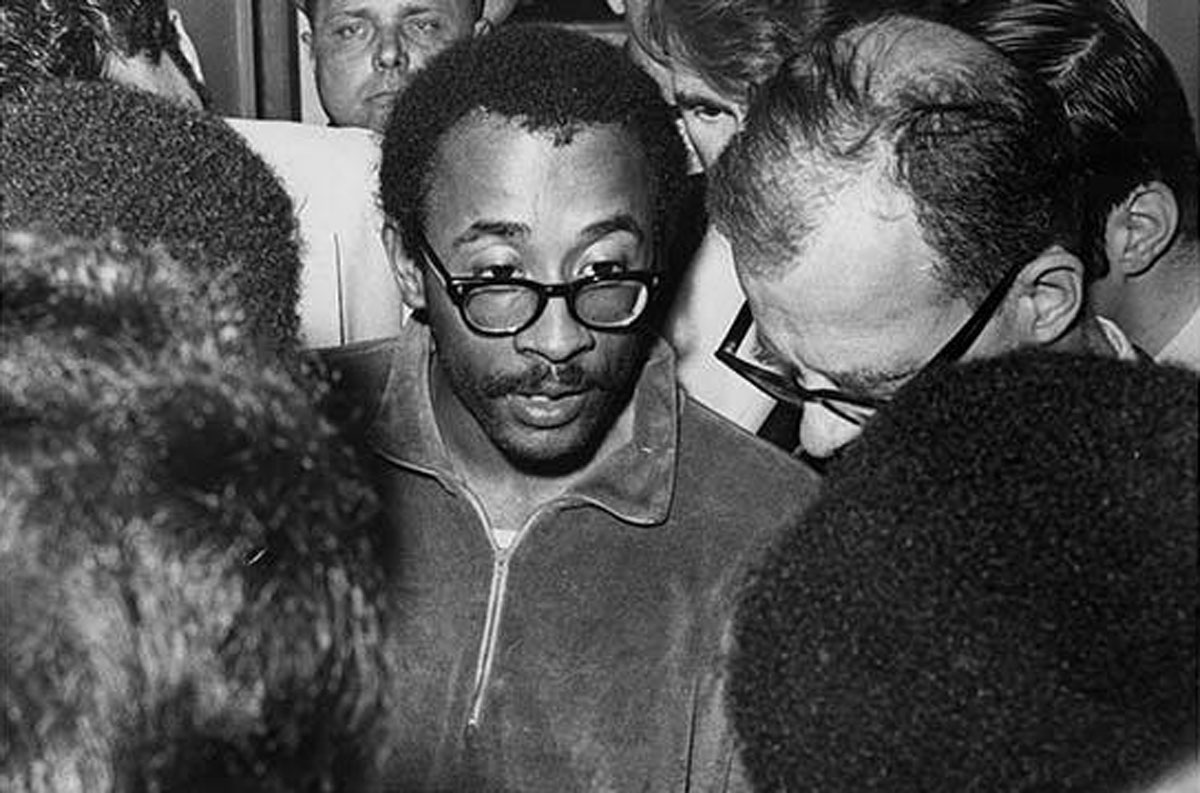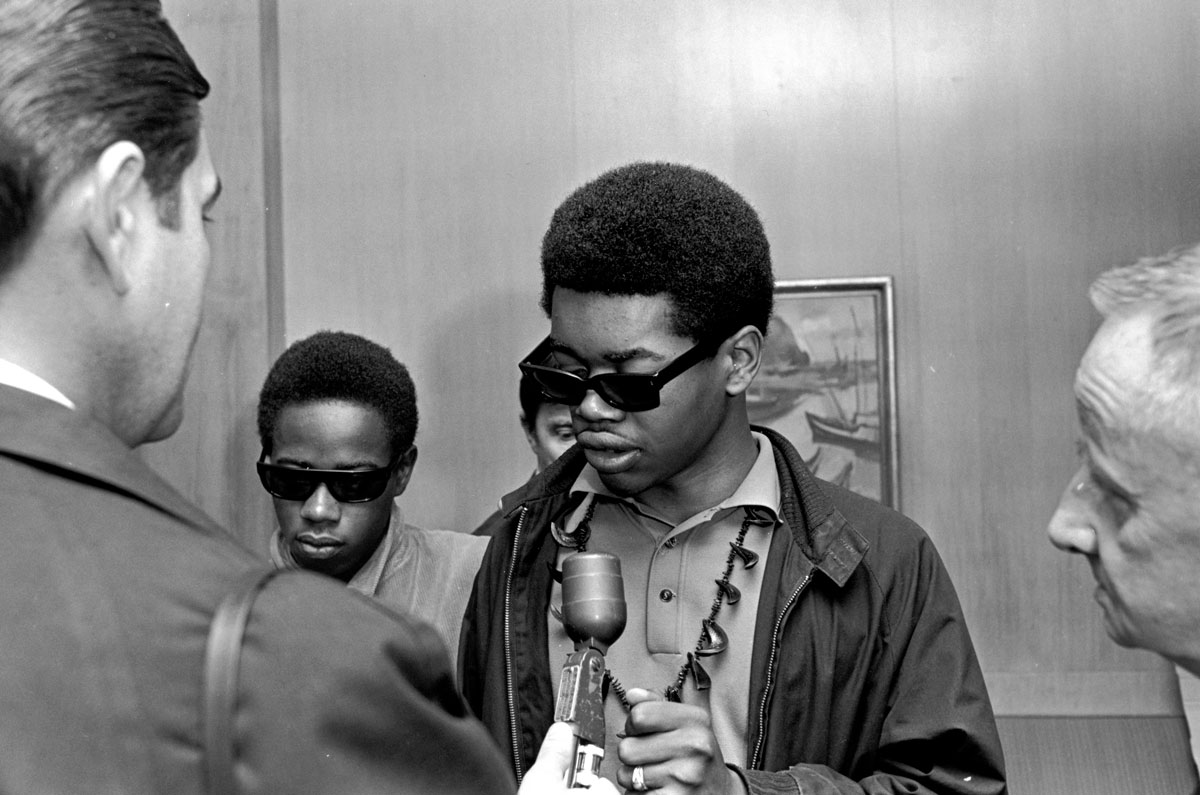Farewell to four of the UW’s founding activists
The University of Washington honors Eddie Walker, Eddie Demmings, E.J. Brisker and Lee Leavy, trailblazing activists who recently died.

An archival photograph caption reads: “Thur., May 9th ’68. Black Student Union Leaders Presented Five Demands At Rally At UW. From left: Eddie Demmings, Carl Miller, Jesse Crowder, E.J. Brisker, Larry Gossett, Ricardo Mankuma. P.I. Photo by Cary Tolman.
Eddie Walker, Eddie Demmings, E.J. Brisker and Lee Leavy—all of whom died in the past 10 months—were among the 20 founding members of the UW’s Black Student Union. Though they were just in their late teens and early 20s back in 1967, they were intellectuals who were intrigued by the world of ideas. Aided and inspired by civil-rights activists, they organized a community of students to address racism on campus—in athletics, in housing and in the Greek system—and to encourage the University to be a national leader in creating programs to improve conditions in the Black community.
They were ready for change, but they thought the University was moving too slowly. Frustrated at the lack of action through spring quarter of 1968, the students demanded the UW take steps to diversify the student body and faculty. In the wake of a sit-in in President Odegaard’s office, the University’s leaders agreed to speed up efforts to increase minority enrollment, develop a Black studies program, hire new faculty and provide funding to recruit and tutor non-white students whose high schools did not prepare them for college. They created the unit that would become the Office of Minority Affairs & Diversity. Helping to fulfill the vision, some of the BSU members took jobs with the University and traveled throughout the state to reach potential students.
The four young men brought different—and crucial—skills to the student organization, says Emile Pitre, ’69, a fellow founding BSU member, campus historian and longtime director of the OMA&D’s Instructional Center.
- Black Student Union founders, from left: Eddie Demmings, Emile Pitre, Garry Owens, Billy Jackson, Eddie Walker and Larry Gossett.
- E.J. Brisker signs an agreement with the University.
- Eddie Demmings gives a speech.
Walker, the artist, envisioned a multicultural center where students from underrepresented communities could meet, study, relax and work together. Brisker, ’70, the more seasoned activist, often stepped up to represent the BSU when dealing with the administration. Demmings, ’75, was the consummate debater. “When Eddie engaged in an argument with a professor or an administrator in their field, I knew he was going to win,” Pitre says. And Leavy, ’86, was skilled in empathy and used performance to drive home his messages.
“All we were doing was ensuring the opportunity existed,” Demmings said in a UW video interview a few years ago. “We had a rough beginning. We didn’t know what we were doing. I don’t think the University knew what it was doing.”
In the decades after they left the UW, they stayed in touch, celebrating the successes as the University continued to improve access and provide support to a multicultural student body. “There’s nothing that gives me in my life greater pride than what has flowered from those seeds in the late ’60s,” Demmings once said. “It’s a model for what could and should exist everywhere.”


